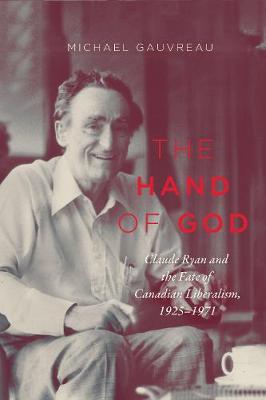Carleton Library
1 total work
Set against a background of intense religious and cultural change and tensions over the meanings of nationalism and federalism in both Quebec and Canada, Michael Gauvreau's The Hand of God traces the emergence of Claude Ryan as a public intellectual. This is the first comprehensive biography of Ryan based on his personal papers and extensive writings as a social commentator, editorialist, and director of the newspaper Le Devoir. At a time of Catholic religious fervour and new currents of social analysis, Ryan spoke for a postwar generation of young Quebecers, assuring his surprising ascension as one of the most influential voices in Canadian liberalism and federalism in the 1960s. In rich detail, Gauvreau describes Ryan's ideas on religion, politics, and society, which assured his importance both as a major figure seeking the transformation of Roman Catholicism in the 1950s and 1960s and as an advocate of a type of liberalism that was often at odds with Pierre Elliott Trudeau's.
He presents compelling new material on the breakdown of social and cultural consensus, a detailed analysis of Ryan's personal and intellectual dealings with both Trudeau and Rene Levesque, and a strikingly new interpretation of the motives of the key players in the October Crisis of 1970. A significant rethinking of the relationship between liberalism, nationalism, and federalism in Quebec in the twentieth century, The Hand of God uses biography as a lens to explore and shed new light on questions central to postwar Quebec and Canadian cultural, political, and intellectual history.
He presents compelling new material on the breakdown of social and cultural consensus, a detailed analysis of Ryan's personal and intellectual dealings with both Trudeau and Rene Levesque, and a strikingly new interpretation of the motives of the key players in the October Crisis of 1970. A significant rethinking of the relationship between liberalism, nationalism, and federalism in Quebec in the twentieth century, The Hand of God uses biography as a lens to explore and shed new light on questions central to postwar Quebec and Canadian cultural, political, and intellectual history.
